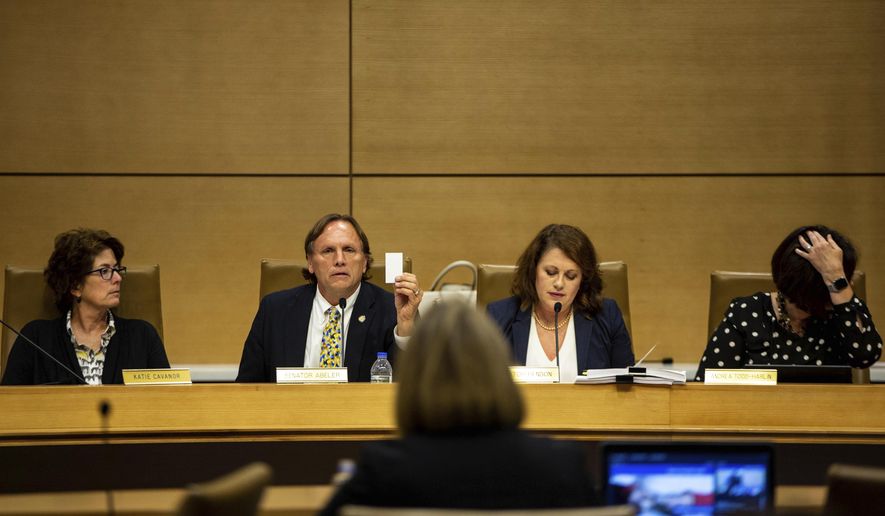ST. PAUL, Minn. (AP) - The chair of a Minnesota Senate committee that oversees the Department of Human Services told the agency’s acting head Tuesday that she or her successor need to figure out how they’ll repay the federal government for $25 million in apparent overpayments to two tribes for substance abuse treatment programs, and not come to the Legislature to ask for more money.
The overpayments were one of the top issues at a joint hearing that two panels overseeing the department held on the turmoil at Minnesota’s largest state agency. The department in recent weeks has seen turnover in its upper management positions, including the abrupt departure last month of Commissioner Tony Lourey, who had been one of the Senate’s top experts on human services before Gov. Tim Walz appointed him commissioner.
The Democratic governor on Monday tapped Jodi Harpstead, the chief executive of Lutheran Social Service of Minnesota, to take over as commissioner effective Sept. 3.
Acting Commissioner Pam Wheelock gave Sen. Michelle Benson, who chairs one of the panels, and other senators few specifics to explain the leadership upheaval. Lourey, the Walz administration and two deputy commissioners whose resignations apparently precipitated Lourey’s, have said little publicly about the reasons.
That concerned several members of the GOP-led committees.
“Everybody’s saying ’What’s going on at DHS?’” Republican Sen. Jerry Relph told Wheelock. “There’s an impression that there’s total chaos.”
Wheelock indicated that the reasons for the resignations, including the two deputy commissioners - who are now back on the job but declined to testify Tuesday - were personal. Benson then asked whether Lourey tried to make changes but encountered resistance.
“At a certain point I think we all have to accept that these are personal choices,” Wheelock replied. “I have not found any issue about impropriety, I have not found any issue about any criminal activity, there is no scandal, there is no chaos.”
Benson also pressed Wheelock on the apparent overpayments to the two tribes - the White Earth and Leech Lake Ojibwe - the details of which remain in dispute. The heart of the problem is that the federal government, working through the state agency, has different reimbursement rates for in-home or in-clinic administration of the anti-addiction drug Suboxone. The tribal chairs told the committee that their governments followed the state’s billing instructions.
Wheelock said tribal care providers normally would reimburse the federal government for any overpayments, though the amounts may change as the tribes review their records. She said it’s premature to speculate on what the department might recommend for how the governor and Legislature address the issue.
Benson said it would be “responsible” for the commissioner to determine how much is owed, adding that Wheelock or Harpstead should find that money in the agency’s existing budget.
“Coming to the Legislature doesn’t seem like a good option,” Benson said, citing the budget increase that lawmakers approved earlier this year. “I don’t think you should go after the tribes unless they did something wrong. … That doesn’t sound like a problem that the taxpayers of Minnesota should have to solve.”
The wide-ranging hearing was the first of what Senate Republicans promised will be several.
Sen. Jim Abeler, who chairs the other committee, said he wasn’t sure that lawmakers “gained a lot of ground” Tuesday, but expressed hope that Wheelock would go back to the department in her remaining time and “ask a lot of questions.”




Please read our comment policy before commenting.